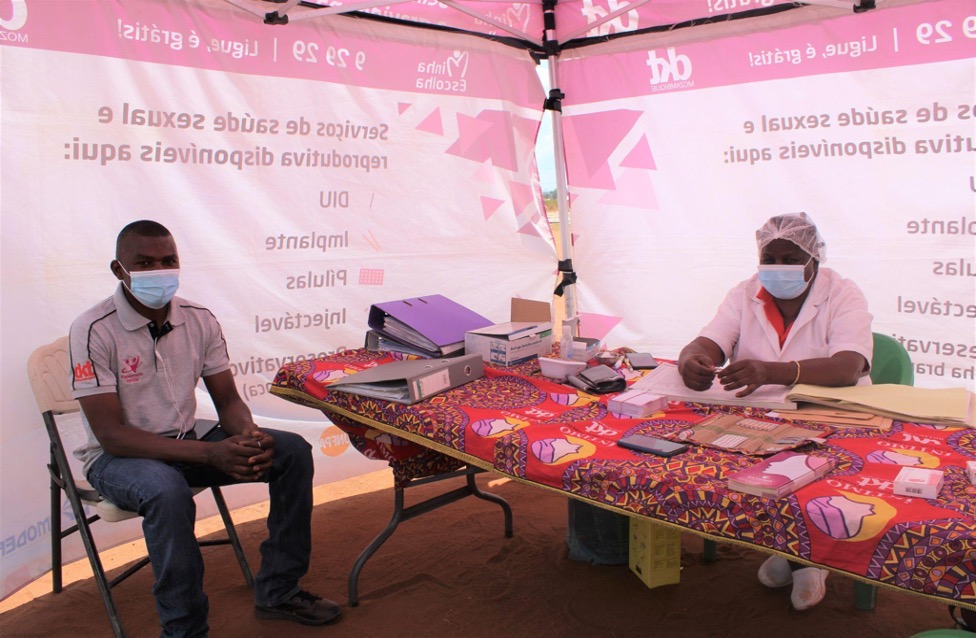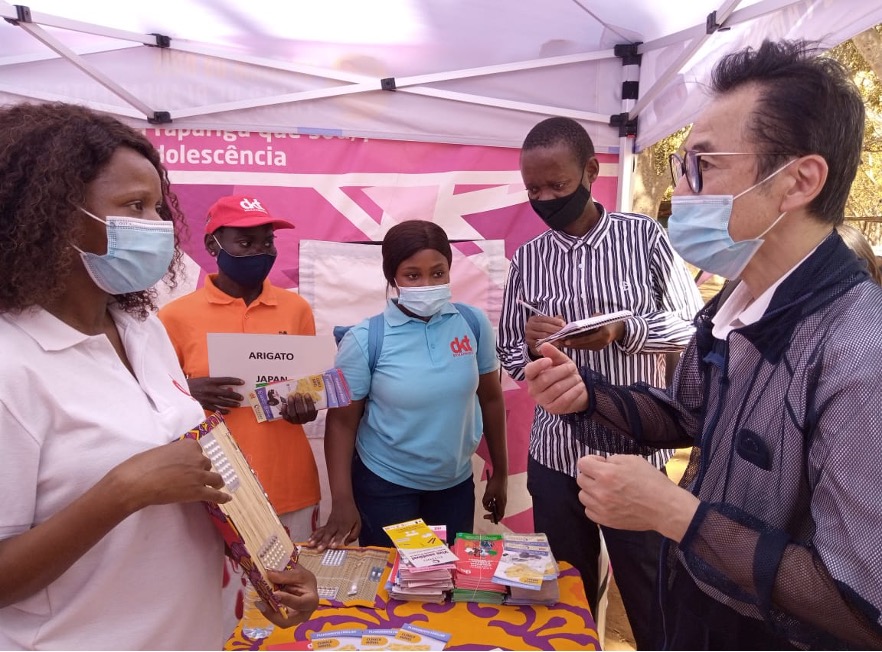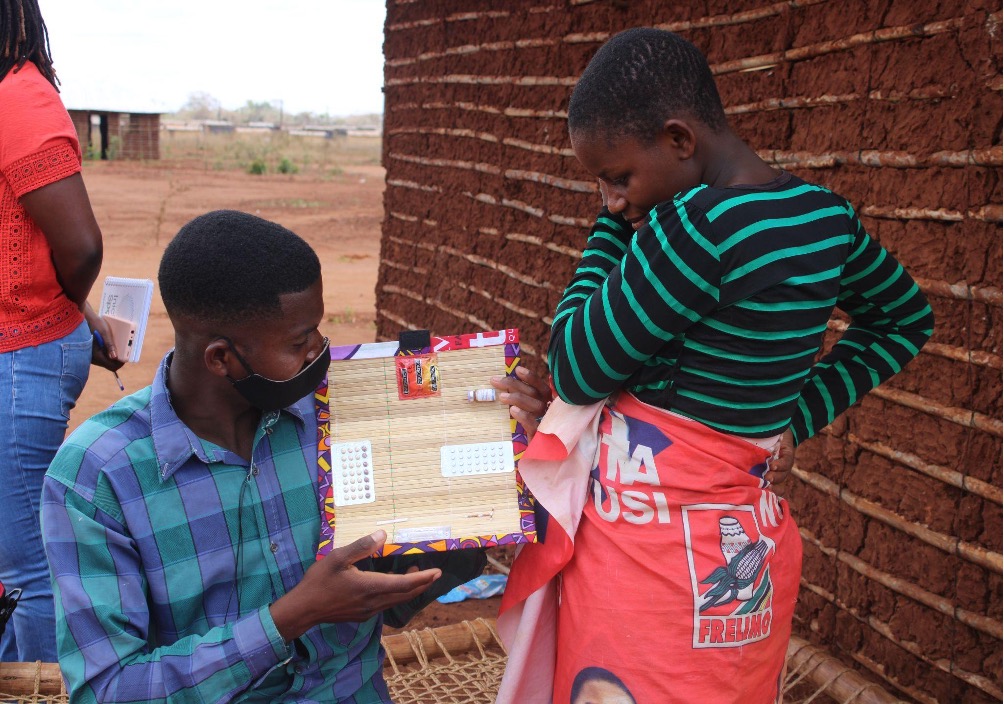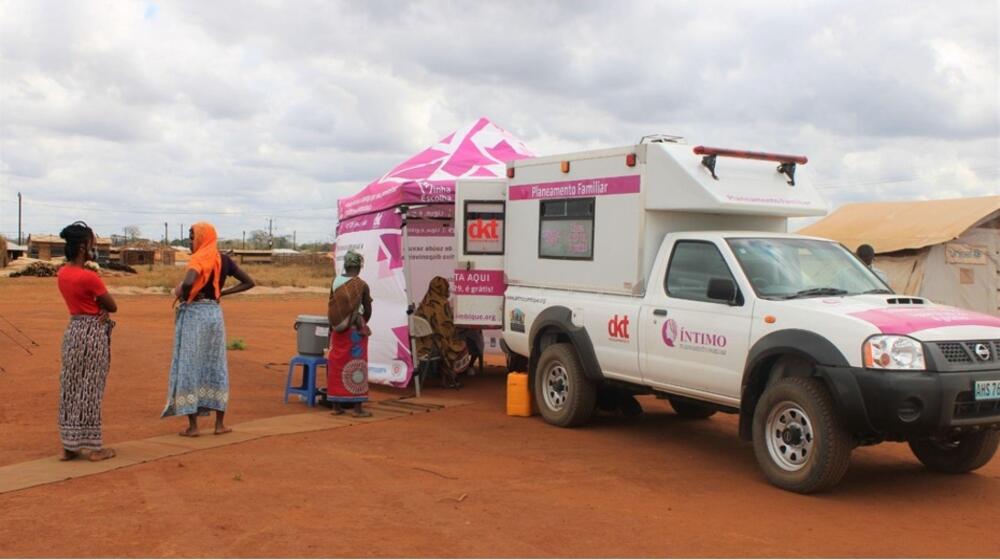“Access to reproductive health services matters. Even in a humanitarian crisis, enabling women to make decisions regarding their own bodies is important,” states Maternal and Child Health Nurse, Maria Luisa Periquito, in Corane Resettlement Site in Nampula Province, Northern Mozambique.
More than two and a half years after Cyclone Kenneth’s landfall (May 2019), the humanitarian crisis in northern Mozambique continues, with insecurity, consecutive climatic shocks and public health emergencies, contributing to displacement, disruption of livelihoods and lack of access to basic services including health, water, and protection services. As of November 2021, approximately 735,334 people are currently internally displaced due to the crisis in Cabo Delgado, with the Province of Nampula hosting approximately 68,951 people (IOM DTM Baseline Assessment Round 14).
In insecure districts of Cabo Delgado, Nampula’s neighboring province, several health facilities have closed, some of which were damaged in conflict. Those that remain open in secure areas are often overwhelmed with increased demand for services due to the influx of displaced populations.
Through a project funded by the Government of Japan, from March 2021 through February 2022, UNFPA, the United Nations sexual and reproductive health agency, is supporting women and girls in Northern Mozambique, both displaced and from host communities through the provision of life-saving sexual and reproductive health (SRH) and gender-based violence (GBV) services. The services are provided by community-based activists, health professionals and other actors in the provinces of Cabo Delgado, Nampula, and Niassa. The project aims to expand the provision of services, including in Nampula province, where there are over 23,000 women of reproductive age (15 - 49) (MISP calculation).
Supplies being procured through the Japan project include three ambulances and 3,000 female dignity kits (containing hygienic and sanitary items that are often are left behind when conflict breaks out), along with interagency reproductive health kits, medical equipment, and supplies which will be used to equip health facilities and referral hospitals to provide SRH and GBV response services, including emergency obstetric and neonatal care.
Reproductive Health Service Provision in Resettlement Sites in Nampula

Maternal and Child Health Nurse, Maria provides integrated sexual and reproductive health services, including family planning, to the displaced population of Corane Resettlement Site through mobile brigades run by UNFPA implementing partner, DKT and funded by the Government of Japan. She indicated that at the outset this vulnerable community was cautious of the mobile clinic. But now, “our work is progressing because the women have accepted us and appreciate our services. There has been significant demand for the injectable contraceptives,” shares Maria, who has more than 40 years of experience in the field. She provides services in the host districts of Nacala-Porto and Meconta where due to remote locations of resettlement sites, accessing health facilities is difficult for many displaced communities. On average, the nurse provides services to 35 women, girls, and youth a day. In 2021, from January through early December, 12,142 women and girls received SRH services including family planning through the Japan-funded mobile brigades in Nampula.
UNFPA staff, activists and mobile clinic service providers were honored to receive H.E. Ambassador of Japan to Mozambique, Hajime Kimura to visit Nampula in December 2021, to exchange with local government representatives and beneficiaries. He said, “In speaking with these women it is evident that they appreciate the services and ability to make decisions around their own bodies and lives. The Embassy of Japan in Mozambique is pleased to support UNFPA’s work in the area of sexual and reproductive health and family planning, in cooperation with local health authorities. These services are very important both to the local community and for displaced people from Cabo Delgado.”

local representatives during a mobile brigades visit in Nampula. December 2021. @Roberto Manjate/UNFPA Mozambique
The project is implemented in cooperation with the Government of Mozambique: Provincial Services for Health, Women’s Affairs, and Social Action; and Provincial Health Services, which provide guidance, supplies, and human resources for the mobile brigades, and supports community mobilization.
Local Activists Raise Awareness
Efforts of health professionals are enhanced by recently trained community activists, who have supported awareness campaigns on SRH services including family planning, and GBV prevention and response.
Mica Inocêncio Macala, 23-years-old, fled the conflict while studying in Mueda District of Cabo Delgado. Since receiving a Japan-funded training organized by DKT on SRH and GBV response, Mica and his activist peers have been leading community dialogues in the Corane Resettlement Site. Mica walks the resettlement site with family planning method samples to show the women and girls the options available to them.

“In speaking with community members, I emphasize that women and girls should be free to decide when they want to have children and how many children to have, whether or not they are married. It’s important that they know we are not trying to tell people not to have kids. Some women may have other reasons why they choose to start using contraceptives; they may face sexual violence, they may be single and sexually active. They should be free to use contraceptives.”
Mobile brigades continue to raise the awareness of the displaced populations on SRH and GBV. This is important, because during crises, women and girls face an increased risk of gender-based violence, unwanted and unintended pregnancies, and preventable death due to pregnancy and childbirth complications.
A total of 29 community-based activists participated in the Japan-funded 2-day training held in Meconta and Nacala-Porto districts. Half are internally displaced persons from Cabo Delgado living in a resettlement site; now they are agents of change, raising awareness on GBV and SRH through home visits and community dialogue sessions. Corane Resettlement Site houses five of these activists, who contributed in efforts to conduct awareness campaigns for 7,203 displaced people in Meconta District from April to October 2021.
In Meconta district alone, 7,642 women and girls received life-saving sexual and reproductive health services including family planning through Japan-funded mobile clinics. Of districts in Nampula Province, along with Nampula City, Meconta hosts one of the highest numbers of internally displaced persons (23,551) (IOM DTM Baseline Assessment Round 14).
“I would like to ask all the project partners to strengthen their efforts so we can continue to provide these important services to displaced communities,” shared Mr. Luis, driver of the mobile brigade unit.
Watch the video below to hear a little about UNFPA Deputy Representative's visit to displaced women and girls in Nampula.


